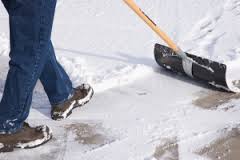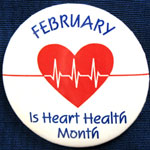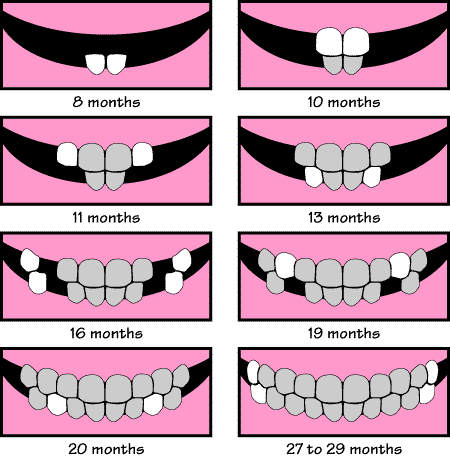February 11th, 2014
The snow falling outside is beautiful and seems to transform Greenville, SC, into a winter wonderland! We can all admit that we aren't as used to this weather as those who live in other areas of the country, and consequently, we aren't as used to dealing with the problems that can arise. While trying to traverse slick roads is one ordeal, one of the most strenuous and dangerous winter activities is right at home! What is it?
Shoveling snow.

When the temperature drops outside, your body's natural response is to make your blood vessels narrow (or constrict) to help prevent your body from losing heat. While this is a normal occurrence, it puts people with heart conditions and those who are involved in strenuous exercise at greater risk of having a heart attack because of the combination of increased blood pressure and the effects of frigid temperatures.
This doesn't mean that you have an excuse not to go outside though! You can safely shovel and keep your heart healthy by following these tips:
- Before starting to shovel, exercise, or do another strenuous outdoor activity, warm up your body with some light activity and stretching.
- Cover your mouth and nose with a scarf while you're working outside so that the air you're breathing in is warmer. Layer your clothing underneath a waterproof outer layer to help you retain body heat.
- When clearing the snow, push it out of the way instead of lifting it. This action saves energy and helps prevent overexertion.
- Take breaks to allow your muscles a chance to relax. This includes your heart! Even better, share the workload with a friend to give yourself a break and to make sure that you aren't alone in case of an emergency.
- If you fall into the category of over 50 years old, overweight, and out of shape, or if you have suffered a heart attack in the past, talk to your doctor before you start shoveling snow (or starting any kind of exercise routine!).
Shoveling snow, might not seem like a big deal, but when you take into consideration the strenuousness of the activity and the effects of the cold winter temperatures on your body, you can understand how it might be dangerous for your heart. So shovel smart and take it easy -- or just hunker down inside and wait for it all to melt! :)
And while we at Jacques Dentistry enjoy admiring the falling snow like everyone else, we understand that it unfortunately causes some scheduling and travel issues for our patients. Stay tuned to our Jacques Dentistry facebook page or to our Jacques Dentistry Twitter account for up to date information regarding office hours during the winter storm. Stay safe!
February 11th, 2014
Show your loved one that you really care by preparing them a delicious and healthy dinner for Valentine's Day! Dining at home will save you some money and some added calories since restaurant meals tend to have more salt, fat, and larger portions than what you would normally eat at home.
Here are some ideas for a delicious dinner courtesy of the Food Network!

Whole Wheat Pasta with Broccolini and Feta

Boby Flay's Grilled Spicy Filet Mignon with Ginger-lime Dressing

Snapper with Roasted Grape Tomatoes, Garlic and Basil
All of these recipes look delicious and they are sure to impress! Let us know if you prepare one on Friday to make it an extra special Valentine's Day -- and feel free to share the leftovers with us! :)
February 10th, 2014
So how does your heart relate to your teeth? These two seemingly separate areas of the body actually are more intimately related than many realize. Problems in your mouth may affect the rest of your body and offer insight into your overall health.

Studies have shown that oral health, and especially gum disease, are related to serious conditions like heart disease. People with periodontal disease are almost twice as likely to have coronary artery disease (aka heart disease). The presence of such oral conditions as gum disease (gingivitis), cavities, and missing teeth, are as good a predictor of heart disease as cholesterol levels. Patients with higher levels of some disease-causing oral bacteria are more likely to have atherosclerosis in the carotid artery -- clogging of the carotid artery can lead to stroke.
How can you protect your heart? Daily brushing and flossing twice a day and regular dental check-ups can help you make sure your mouth is in optimal health. By keeping oral bacteria in check, you can improve your overall health and keep your heart less susceptible to disease.
Let your dentist in Greenville SC help you stay on the right healthy track!
February 7th, 2014
While every child is different, there is a general time frame for when baby teeth appear in a child's mouth. In dental terms, we refer to this as tooth "eruption"; the normal loss of a baby tooth as it becomes loose is called "exfoliation."
The general pattern is as follows: the first teeth to appear are the lower central incisors, which are the bottom front teeth. Then, the upper central incisors, or top front teeth come in. Then the teeth or either side of these come in -- the lateral incisors -- with the lower teeth usually emerging before the matching top teeth.
Next, molars appear! The appearance of the molars will create a space on the bottom and top that will later be filled in by the canine teeth, which have a more pointed edge. The last baby teeth that come in are the second set of molars in the very back. They usually appear around the time of a child's second birthday.
So that makes twenty baby teeth in all! A child will have these teeth until around six years old when permanent teeth begin to make their appearance. While every child is different, this chart gives a good overview about when you can expect which tooth. Don't worry if your child doesn't match up exactly with these ages. In general, you can add or subtract a few months for an idea of the normal age range.









